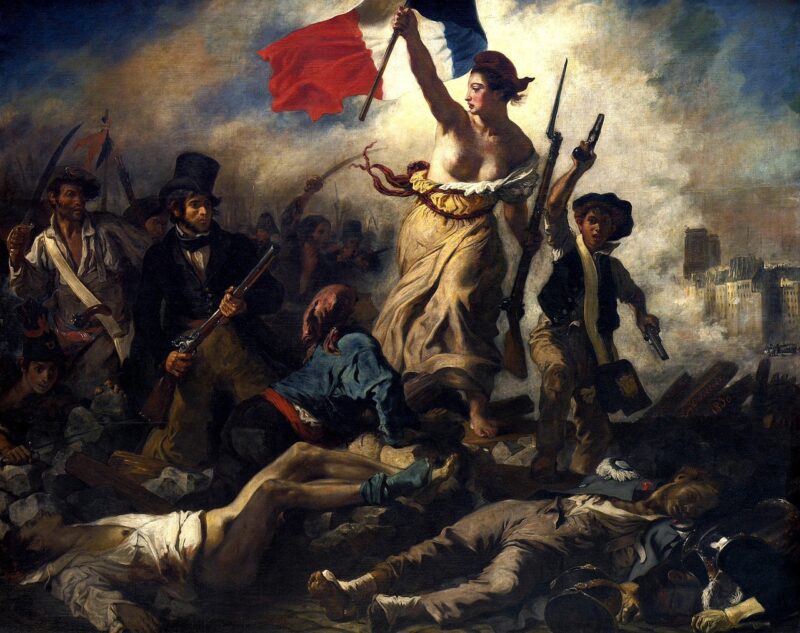The Global Influence of Political Movements Sparked by Historical Revolutions
November 16, 2024

Throughout history, revolutions have served as catalysts for profound change. These political movements, often born from dissatisfaction with existing social, economic, and political systems, have led to the establishment of new ideologies and reforms that resonate beyond their geographic origins. This article delves into the global influence of political movements inspired by historical revolutions, exploring their origins, impacts, and how they have shaped the modern world today.
1. Understanding Revolutions: Definitions and Significance
Revolutions are often defined as moments of radical change wherein a group of people rises against an oppressive regime or structure. They can be social, political, or economic and typically aim to create a new order or system of governance.
Historically, revolutions symbolize a rejection of tyranny and represent the struggle for rights and freedoms. They have often paved the way for democratic governance, civil rights, and socio-economic reform, influencing future generations and movements across the globe.
2. Major Historical Revolutions and Their Impacts
Throughout history, there have been prominent revolutions that have sparked political movements far beyond their borders. Some of the most significant include:
The American Revolution (1775-1783)
The American Revolution not only established the United States as an independent nation but also inspired ideologies of democracy and liberty globally. The principles of the Declaration of Independence influenced revolutionary movements in France, Latin America, and later, even in Asia and Africa, where populations fought for self-determination and human rights.
The French Revolution (1789-1799)
Often viewed as a turning point in world history, the French Revolution emphasized ideas such as secularism, liberty, and fraternity. It dismantled the feudal system in France and ignited revolutionary sentiments across Europe and the Americas. Nations such as Haiti saw revolts against colonial rule inspired by French ideals of freedom and equality.
The Russian Revolution (1917)
The Russian Revolution of 1917 not only led to the collapse of the Tsarist regime but also inspired communist movements around the world. The Bolshevik ideology spread to countries in Eastern Europe, Asia, and Africa, prompting anti-colonial struggles and socialist revolutions that sought to empower the working class against imperialism.
The Chinese Revolution (1949)
The Chinese Communist Party’s takeover profoundly impacted the geopolitical landscape of the 20th century. It inspired socialist movements in Asia, Africa, and Latin America, where colonized or oppressed citizens sought to establish similar egalitarian societies. The ideologies propagated by Mao Zedong influenced guerrilla movements and strategies for revolutionary change.
3. Key Global Movements Influenced by Historical Revolutions
As revolutions have influenced nations and cultures, specific global movements can be traced back to these transformative events:
Anti-Colonial Movements
Inspired by the freedom struggles of the American and French Revolutions, several countries in Asia, Africa, and the Caribbean began their fight against colonial powers in the mid-to-late 20th century. The principles of sovereignty and equality spurred independence movements in Algeria, India, and more, creating a ripple effect for nations seeking self-governance and national identity.
Civil Rights Movements
The advocacy for civil rights, particularly in the United States during the 1950s and 1960s, was deeply influenced by revolutionary ideals of equality and justice from earlier revolutions. Activists such as Martin Luther King Jr. drew inspiration from both the American and French Revolutions to advocate for social justice, challenging systemic racial discrimination and igniting movements internationally for civil rights and liberties.
Pro-Democracy Movements
From Eastern Europe’s Velvet Revolution to the Arab Spring, the ideals of democracy ignited political activism worldwide, urging citizens to challenge authoritarian regimes. These movements often referenced earlier revolutions as templates for change, rallying citizens around common themes of freedom, equality, and justice.
4. Modern Implications of Revolutionary Ideals
In a contemporary context, revolutions continue to inspire political movements around global issues such as:
- Environmental Justice: The fight against climate change calls for a revolutionary mindset akin to past revolutions. Movements today aim to dismantle oppressive systems that exploit natural resources, advocating for sustainable policies.
- Labor Rights: The perceived inequities in labor rights echo sentiments from the Russian Revolution, leading to a resurgence in union movements and workers’ rights campaigns worldwide.
- Global Health Equity: The COVID-19 pandemic exposed systemic inequalities in health, prompting movements for equitable access to healthcare rooted in revolutionary ideas of universal rights and well-being.
These modern movements continue to draw from past revolutionary successes and failures, shaping new ideologies while challenging existing power structures.
5. Conclusion: The Power of Revolutions Across Time and Space
Revolutions possess the power to transcend borders, catalyzing movements that influence the lives of millions across generations. As seeds of change are sown in one part of the world, they flourish elsewhere, inspiring individuals to advocate for their rights and freedoms. Understanding the global influence of these movements is crucial for grasping how the past shapes the present—an ever-evolving tapestry woven from the threads of history and aspiration for a better future.
As we reflect on the historical revolutions that shaped our world, it becomes evident that their legacy continues to guide contemporary struggles for justice, freedom, and equity.







